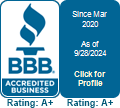
Decoding Your Credit Card: Key Questions To Understand the Terms and Conditions
In today’s financial landscape, credit cards have become indispensable tools for managing everyday expenses, building credit, and earning rewards. However, amidst the allure of convenience and perks, it is easy to overlook the nitty-gritty details buried within the terms and conditions. Understanding them is crucial for making informed financial decisions and avoiding costly pitfalls.
But, the “terms and conditions” document is difficult to decipher. The language is complex, and the text is tiny. Instead of reading the terms and conditions, you should contact your credit card issuer and ask the right questions. Let us delve into the inquiries you should make to decode your credit card terms and conditions.
1. What Are The Interest Rates And How Do They Apply?
Understanding the interest rates associated with a credit card is paramount. Inquire about the Annual Percentage Rate (APR) for purchases, balance transfers, and cash advances. Additionally, ask how the issuer calculates interest—whether on the average daily balance or other methods. This knowledge helps you gauge the cost of borrowing and how interest accrues on your balance.
2. What Fees Are Associated With The Card?
Credit card fees can quickly add up and impact your overall cost of ownership. Ask about annual fees, late payment fees, foreign transaction fees, balance transfer fees, and other charges. Understanding these fees will enable you to factor them into your financial calculations and avoid unnecessary expenses.
3. What Is The Credit Limit?
Both the kind of card and your credit score will affect your credit limit and determine the maximum amount you can borrow. Having a high credit limit can help raise your credit score. According to experts, you should use less than 30% of your credit limit to maintain the credit utilization ratio. An illustration would be having a $10,000 credit limit and never having more than a $2,000 balance.
Inquire about the initial credit limit and whether it can be increased or decreased over time based on your spending habits and creditworthiness. Understanding your credit limit is crucial for maintaining a good credit score, managing your finances, and avoiding over-limit fees.
4. What Is The Company’s Policy Regarding Late Payments?
Making monthly payments on time should be your top priority. However, life is not perfect- a lot of things can happen. For this reason, it is critical to comprehend the precise consequences of making a late credit card payment. You should first find out how your card issuer defines “late.”
A few companies provide a “grace period” which lasts from a few hours to a few days. During that time, nothing will happen if you pay before it expires. On the other hand, some companies define “late” payment as occurring after midnight on the day of the payment deadline, and they will charge you a substantial late fee in addition to the amount you have already reached. Asking about the potential impact of a late payment on your APR is also advisable. An appreciable increase might result from a late payment.
5. What Is The Foreign Transaction Policy?
Speaking of traveling, find out what a card charges for foreign transactions. Generally, you can choose whether your credit card transaction is processed in local currency or US dollars when using it overseas. In either case, you may have to pay a fee of some kind—a “foreign transaction” fee or a conversion fee that ranges from three to five percent. However, there is a trend to eliminate this fee, so your card may not incur one.
Have no plans to travel abroad anytime soon? You might still want to inquire about this, as some credit card companies also charge international transaction fees if you shop at an online store based in another country.
6. What Rewards or Benefits Does the Card Offer?
If interested in earning rewards or accessing benefits, delve into the details. Inquire about the earning rate for rewards, redemption options, any restrictions or blackout dates, and whether there are limits on earning or redeeming rewards. Also, ask about ancillary benefits like travel insurance, purchase protection, and extended warranties.
7. Are There Any Introductory Offers or Promotional Rates?
Many credit cards entice applicants with introductory offers, such as a 0% APR for a specified period or bonus rewards. Clarify the duration of these promotional rates and any conditions attached, like minimum spending requirements. Also, inquire about the interest rate that will apply once the introductory period ends to avoid surprises.
8. What Are the Terms for Balance Transfers and Cash Advances?
If you intend to use your credit card for balance transfers or cash advances, scrutinize the associated terms. Ask about applicable fees, interest rates, and any promotional offers. Understanding these terms helps you evaluate whether these features align with your financial goals and needs.
9. Are There Any Additional Perks or Services?
Beyond rewards programs and benefits, some credit cards offer additional perks or services. These may include complimentary access to airport lounges, concierge services, or special discounts with partner merchants. Inquire about any unique offerings that may enhance your cardholder experience.
Conclusion
Asking the right questions about your credit card terms and conditions empowers you to make informed decisions and wield your credit card responsibly. By understanding the intricacies of interest rates, rewards, policies and perks, you can maximize the benefits of your card while minimizing potential risks. So, next time you are perusing the fine print, arm yourself with these essential inquiries to unlock the mysteries of your credit card terms.


